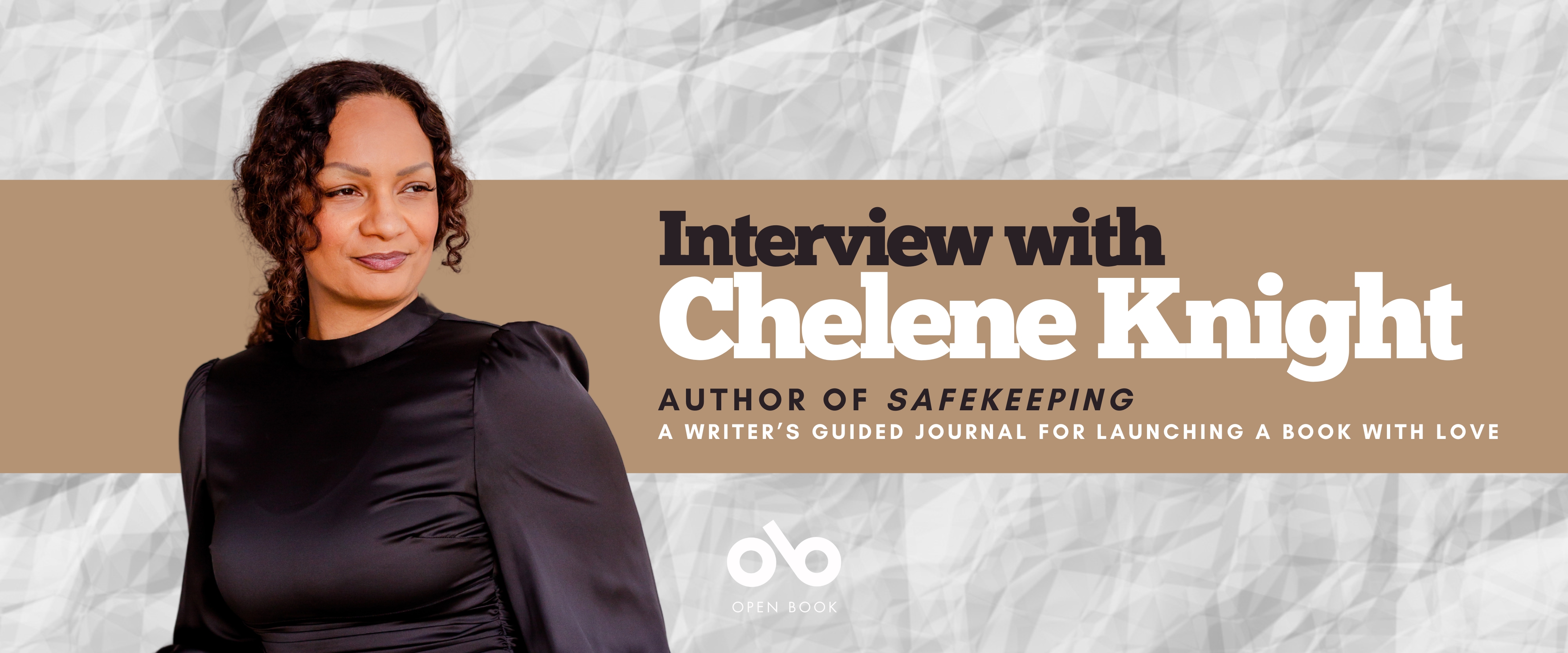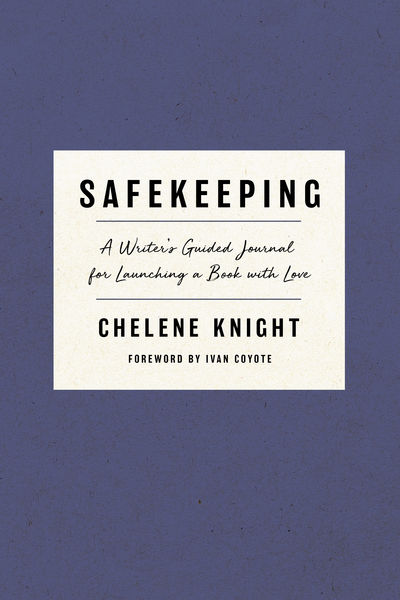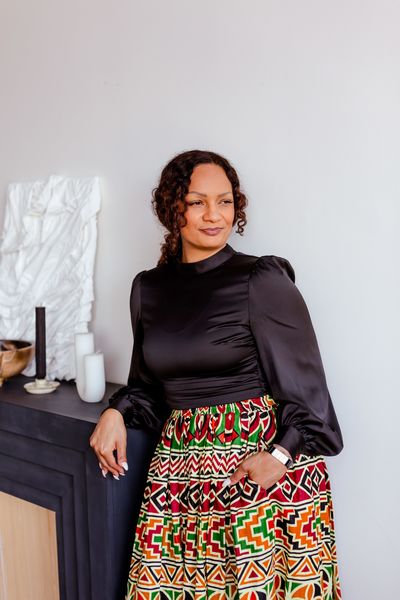Award-Winning Author Chelene Knight Shares Savvy Literary Advice in Safekeeping: A Writer’s Guided Journal for Launching a Book with Love
Chelene Knight is renowned not only as an author, but also as a writing mentor and advisor who helps writers navigate their careers and learn best practices to find readers for their books. And now, after publishing a number of acclaimed works of prose and poetry, Knight has distilled some of her sage writing advice into a new nonfiction book.
Safekeeping: A Writer’s Guided Journal for Launching a Book with Love (House of Anansi Press) is billed as "a unique guided journal designed to empower writers at every stage of their careers." These pages contain practical, straightforward guidance for authors at all stages of their career, and for those who are writing simply for the craft and for themselves, not even necessarily aiming for eventual publication.
The tools and exercises in these pages will prove invaluable to writers, and, as mentioned earlier, the book also serves as a journal that will document each author's journey through the writing and publishing process.
We're very excited to share this riveting Going Pros and Cons piece with the founder of Breathing Space Creative, and we'll also be running a special giveaway next week where lucky readers can win copy of Safekeeping, along with a branded pen and a three-month membership to Knight's Forever Writers Club. Keep an eye out for that on Monday!
My best public reading or event experience:
Two standout event experiences come to mind, but the one that truly lingers is my 2018 Politics & Prose panel at the Vancouver Writer’s Festival. Sharing the stage with incredible writers Waub Rice and American writer Javier Zamora was an honour, but what made the experience unforgettable was the moderator John Freeman. Being the only female on stage, I won’t lie I was a bit nervous. But with John’s questions, it was clear he hadn’t just read my work—he had deeply engaged with it, exploring who I was as a writer and investigating my "why." Why do I write? What drives my work?
The questions he asked felt like an extension of my own intentions, helping me articulate the exact message I wanted to share (this is gold for an introvert like me). This level of care elevated my confidence as I spoke to a packed audience, making the experience both empowering and deeply meaningful.
While you can’t always guarantee such an intentional moderator, you can prepare yourself by understanding your project pillars. Why did you write this book? What do you want it to achieve in the world? These are invaluable tools for decision-making—and when someone else recognizes and honours them, it’s truly next-level. It’s no wonder I remember all the details of this event seven years later!
The thing that surprised me most about the publishing process:
What surprised me most about the publishing process was how long it takes. But after launching five books, I’ve come to see this time as a gift. With so many phases—and so many hands—your book moves through, the process can vary greatly depending on the publisher. Having worked with four different publishers, I can confirm just how unique each journey can be.
Your CanLit News
Subscribe to Open Book’s newsletter to get local book events, literary content, writing tips, and more in your inbox
The extended timeline, however, offers a valuable opportunity to plan and align expectations. I often organized my life around the different phases of production. For example, during the intensive editing stage, I scaled back on other projects and commitments to fully focus on collaborating with my editor. And since marketing isn’t my strongest suit (though I know how critical it is), I started working on my self-promotional plans well in advance so that it didn’t feel like something I wanted to avoid. I’ve learned that writers have so much control over how we plan and use our time. Why not approach it strategically to make the most of the process?
The advice I would give someone publishing a book for the first time:
My advice for all the debuts is to define success for yourself and set up some realistic expectations. If you need help with this, work with a coach, it’s worth it. This can literally make or break your publishing experience. As debuts, we sometimes have our head in the clouds—not in a bad way, just in a misinformed way. Publishing is a beautiful experience, but you can’t play a passive role. It's important to understand that while awards and prizes are wonderful acknowledgments, they should be seen as bonuses—extras—not the sole markers of success. For example, with my novel Junie, my definition of success was clear and personal: I wanted to spark meaningful conversations about grief and identity, and I aimed to have those discussions with the right audiences. That goal, for me, was the true measure of success.
What I think about MFA programs:
MFA programs can be helpful for writers who want a structured workshop experience, want to learn more about craft, and perhaps one day teach at the university level. MFA programs can elevate the work you do, but having an MFA is not a requirement for publishing a book, or five
; )
I've heard from countless writers who assume their book isn't being picked up because they don't have an MFA. However, the reality is far more nuanced. There are countless variables at play, including market trends, full editorial calendars, acquisitions approvals, and more. An MFA is not a magical solution to publishing challenges, and it's time we start discussing this openly and transparently. Writers deserve to understand the broader context of the industry rather than placing undue pressure on themselves over a single credential.
What I think about literary awards:
Literary awards can be super impactful, with the potential to significantly elevate a book's visibility—even making the longlist for certain awards can create meaningful opportunities. However, a common challenge arises when authors tie their sense of worth to winning these awards. As I’ve shared before, awards are best viewed as a bonus—a wonderful acknowledgment—but not as the ultimate measure of an author’s value or success.
What I think about writing grants:
Grants are a fabulous resource for writers, yet many don't fully incorporate them into their annual planning or budgets. It's helpful to approach grant opportunities strategically—after all, being an author is a business, whether we like to admit it or not. The moment you release a book into the marketplace, you’re engaging in the business of authorship.
That said, grant writing can feel daunting for many writers (I’ve been there, too!). Working with grant specialists like Yolande House made a world of difference for me, transforming what once felt overwhelming into something approachable and empowering. Grants offer the potential to carve out dedicated time away from work and obligations, allowing writers to fully immerse themselves in new projects. I’m deeply grateful that we have access to this kind of support.
However, we can’t overlook the emotional toll of not receiving funding, especially after all that work preparing the grant application. The disappointment can be hard to navigate, and I’d love to see more open conversations about how writers process and move forward from these moments. It's a vital part of the journey that deserves more attention.
__________________________________
Chelene Knight is the author of Let It Go, Braided Skin, and the memoir Dear Current Occupant, winner of the 2018 Vancouver Book Award and longlisted for the George Ryga Award for Social Awareness in Literature. Her novel, Junie, won the 2023 Vancouver Book Award, was longlisted for the inaugural Carol Shields Prize for Fiction, and was a finalist for the Ferro-Grumley Award for LGBTQ fiction. Chelene is the founder of Breathing Space Creative, home to the Thrive Coaching Program.







